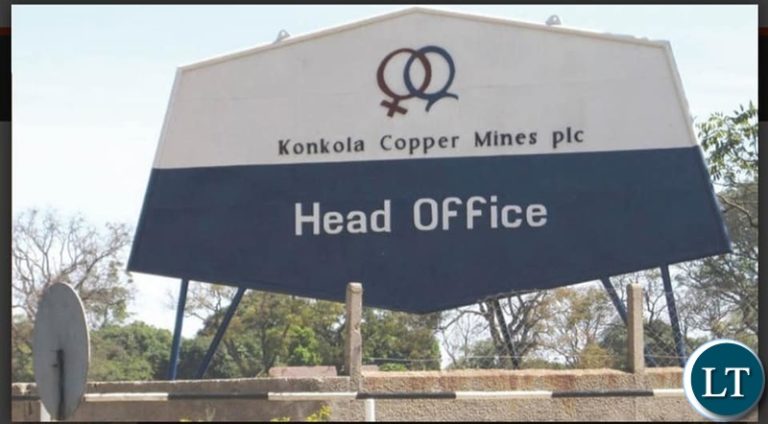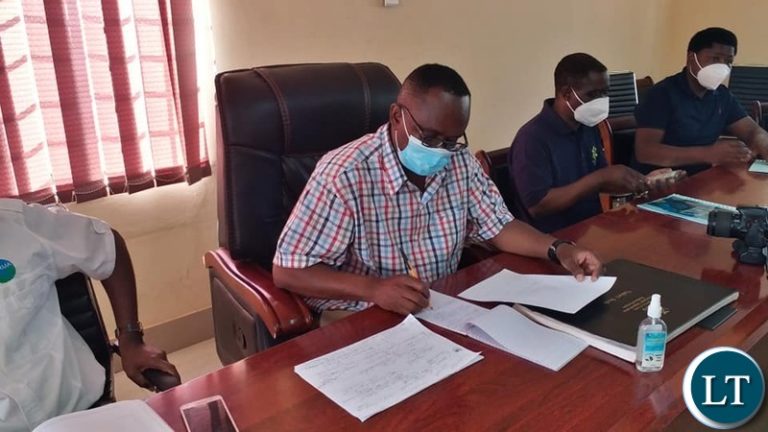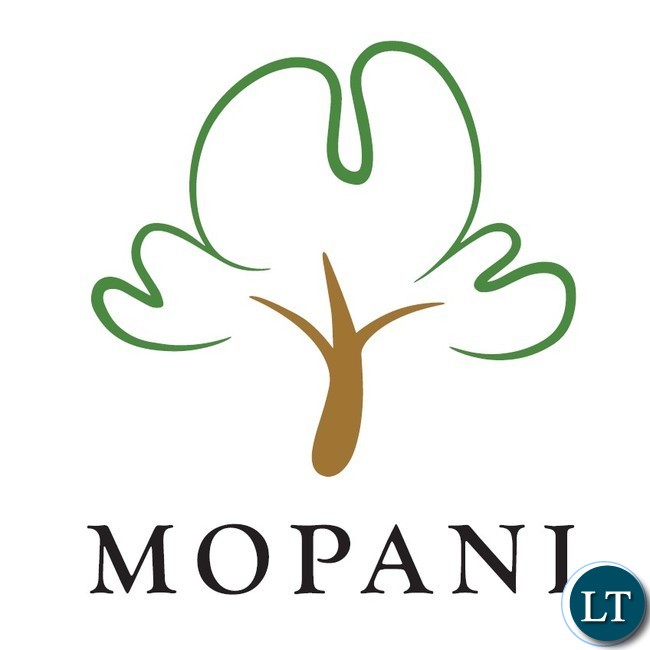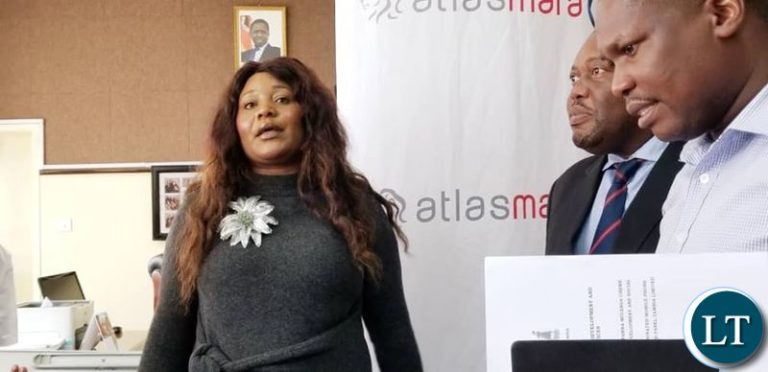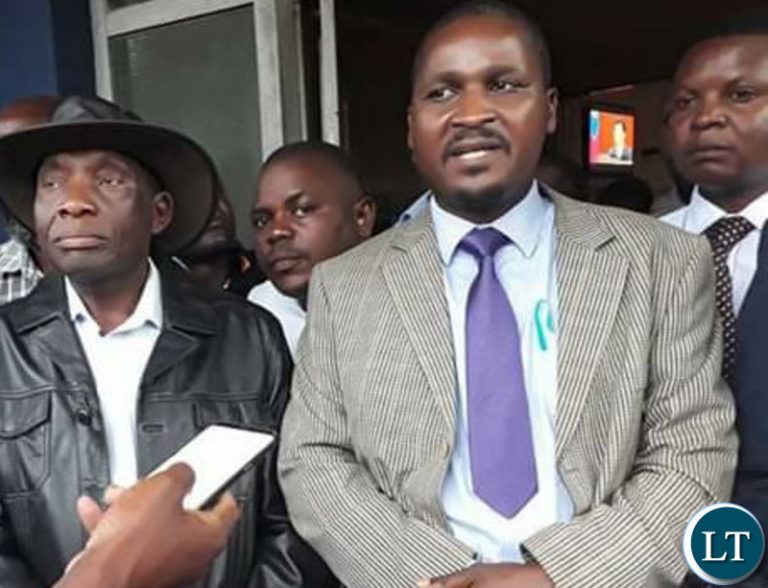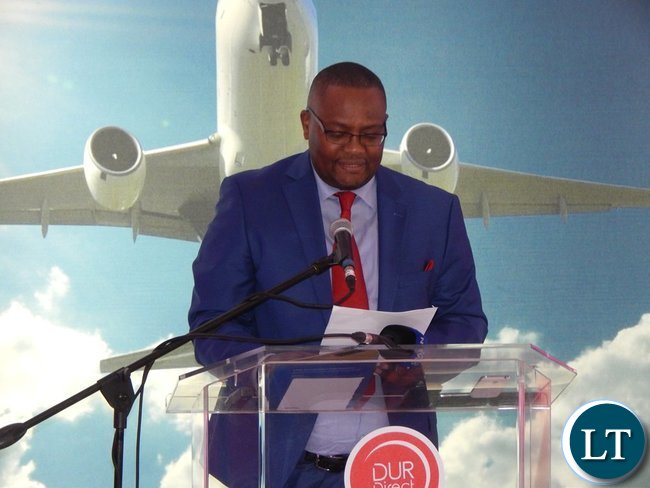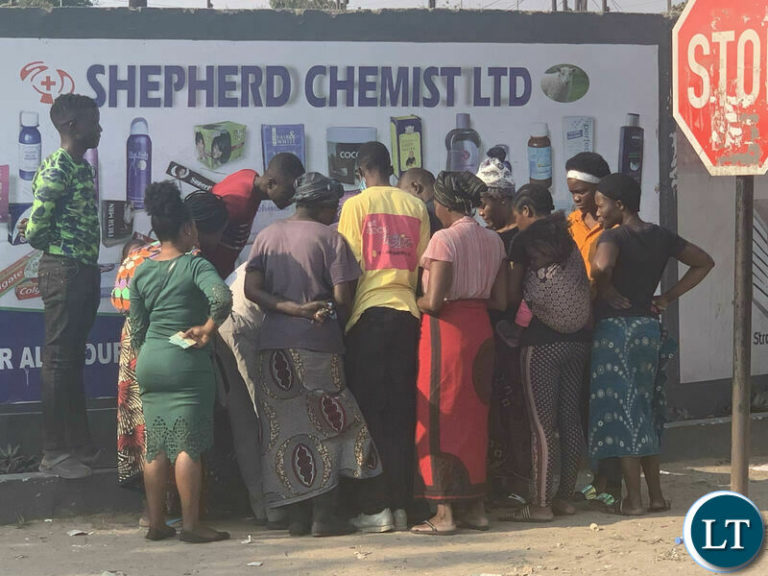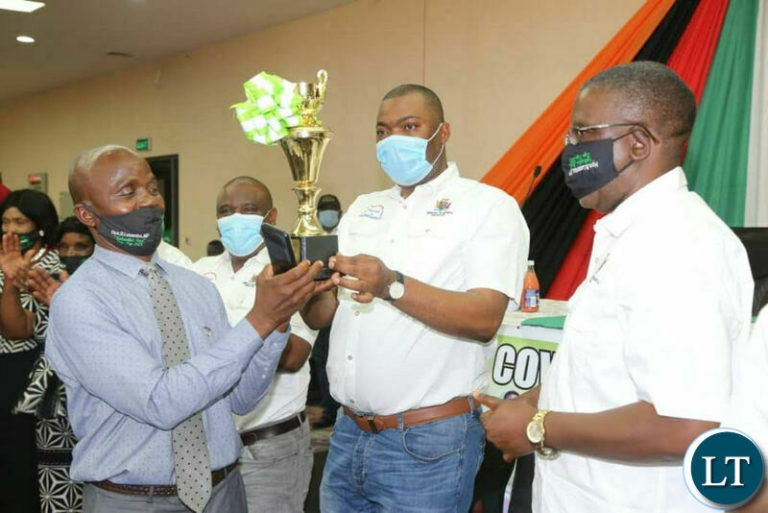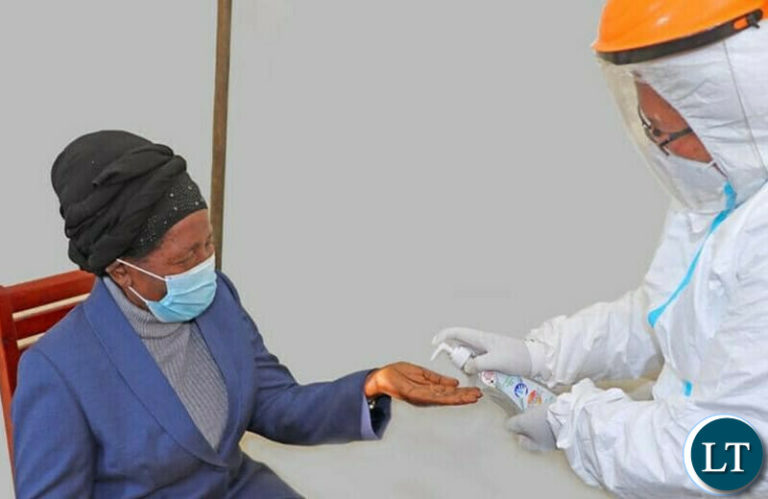Destro speaks on monetizing your voice.
Nampundwe Mine pyrite breaks decade long production record
The Konkola Copper Mines (KCM) Nampundwe Mine, a pyrite mine in Shibuyunji District, has steadily increased production since the beginning of the 2020/2021 Financial Year in April, breaking a decade long production record during the second quarter of the year.
KCM General Manager for Corporate Affairs Shapi Shachinda said prior to April 2020, the mine was producing around 2,000 tonnes of pyrite per month with the change coming in April and May when it produced over 4,000 tonnes before hitting the 5,000 tonnes mark in June.
Mr Shachinda noted that the Nampundwe pyrite mine has not produced more than 5,000 tonnes of pyrite in the past 10 years. The previous highest monthly production was 4,100 tonnes per month in 2011. Pyrite is a mineral containing Iron and Sulphur, which is used in the process of smelting copper at the Nchanga smelter in Chingola.
At the start of the financial year in April, the business plan was to ramp up production to 4,000 tonnes per month, but the increase in the demand for the commodity at the Nchanga Smelter, and other customers, necessitated a revision of the plan to ramp-up production to 5,500 tonnes per month by October and, 54,247 tonnes for the year.
Mr Shachinda said, “In July, the mine produced the record breaker of 5,216 tonnes against a target of 3,997 tonne for the month.”
“The increase in production has been achieved through Management’s sustained focus and support to production teams in the last one year, and the support of the hard-working employees,” he added.
He noted that this performance is the result of the combined teamwork of all Nampundwe employees and contractors, and associated Suppliers. The mine is current with payments for labour hire and mining standards are improving, especially available underground ore stocks.
Mr Shachinda also noted that the mine is in a much better position now since last year, with a sustainable future.
Government to address challenges being faced by water utility companies
A tripartite engagement with Ministries of Energy and Finance as well as Water Development,Sanitation and Environmental Protection, has been constituted aimed at addressing water and sanitation challenges being faced by water utility companies.
Water Development, Sanitation and Environmental Protection Minister Dr Jonas Chanda has disclosed that the meeting which was called by President Edgar Lungu aims to address various challenges been faced by utility companies in a multi sectoral approach.
Dr Chanda announced this when he paid a courtesy call on Northern Province Minister Hon Chungu Bwalya and assured that government wants to remove barriers that affect provision of good water supply and sanitation by understanding the challenges and finding long term solutions.
He said the tripartite engagement will promote an integrated approach that will address indebtedness,tariff issues and funding among the utility companies in order to see how best they can be capacitated to help government attain the vision 2030 of universal acess to clean and safe water.
Dr Chanda said government wants to ensure that all the money owed to utility companies is settled in order to sustain their operations and further pleaded with consumers to play their part in paying for water bills as he encouraged for establishment of flexible payment plans in the wake of economic challenges as a result of COVID-19.
And Dr Chanda who is on a familiarization tour of Muchinga,Luapula and Northern Provinces has urged water utility companies to change their business models that will help them diversify and be able to supplement governments efforts in ensuring that they remain viable.
The Minister was responding to a presentation done by Chambeshi Water and Sewerage Company Managing Director Mr Luckson Simumba who highlighted various operational challenges among them non-payment of water bills by consumers.
“Water utility companies are suppose to expand their portfolios such as enter into other ventures and initiatives such as power generation, consultation services,bottling companies, water treatment manufacturing industries”Dr Chanda said and thanked Chambeshi Water and Sewerage Company for making innovative strides to promote self sustainability.
Mr Simumba informed Dr Chanda that the water utility company is implementing various projects such as setting up a bottling plant, chlorine production, power generation among other to which the Minister thanked them and extended an invitation to the utility company to make a presentation on their various innovations and development models to other utility companies in order to adopt such innovative solutions to promote industrial growth and self sustainability.
And Northern Province Minister Hon Bwalya Chungu expressed confidence that many water challenges in the province will be addressed with the various water and sanitation projects being implemented in the province.
Should Government Use ZCCM-IH to Buy Mopani Shares?- The Green Party Perspective
Last week, it was revealed by Government, through ZCCM-IH, is seeking to buy controlling shares in Mopani Copper Mines (MCM) by buying off Glencore shares.
At the moment, ZCCM-IH is a shareholder in MCM with only 10% shares. Glencore holds 73.1% shares while First Quantum owns 16.9%.
MCM is valued at about US$1.67 billion. This means Glencore shares are worth about US$1.22 billion.
The question is: should Government use ZCCM-IH as a vehicle to buy these shares?
First of all, at the moment, we do not think that ZCCM-IH has financial resources to pay US$1.22 billion cash. However, IDC has the capacity to do so.
Of course, we are aware that IDC has 60.28% shares in ZCCM-IH, while Government has 17.25% shares in ZCCM-IH.
Our view as the Green Party is that acquisition of the MCM shares is a very welcome move in the sense that in 2022, we expect the prices of copper and cobalt to spike. This could therefore a golden opportunity for Government to find money to pay the first Eurobond loan of US$750 million which is due about that time. Otherwise, it will be extremely hard for Government to find such colossal funds if restructuring efforts fail to materialize.
Having said this, we think that ZCCM-IH is a wrong vehicle to acquire the MCM assets. Rather, we think that it is better for Government, through IDC should set up a new company altogether to takeover the Glencore and Government shares in MCM.
The reason is simple. You will recall that two years ago when Felix Mutati was Finance Minister announced in Parliament that Government would soon sale 17.3% of its shares in ZCCM-IH?
You remember he said the long term strategic plan was to reposition ZCCM-IH for growth through strategic partnership and to comply to LUSE requirements? He said that the LUSE listing requirements stipulates that no single shareholder should control more than 25% of equity in any one listed company? And that in compliance with the listing requirements, government intends to sale 17.3% of its shareholding in ZCCM-IH?
You also recall that Government planned to sell the shares to an Israeli company? You also recall that a search on the physical address of the company in Israel for the said company was elusive? And you recall that ZCCM-IH paid over $100 million advance payment to an Italian company to rehabilitate Ndola Lime, and that company went into liquidation making ZCCM-IH lose so much money?
You will also recall that ZCCM-IH is in court and arbitration with KCM over multi-million claims? Are you aware that if, ZCCM-IH loses, it may be liable to compensate Vedanta billion dollars?
How far has Government gone with the sale of the 17.3% of ZCCM-IH shares to comply with LUSE listing requirements? How far has ZCCM-IH gone to recover the US$100 million advanced to the Italian company in liquidation? How far is the ZCCM-IH and Vedanta KCM case in court? How far is the ZCCM-IH and Vedanta KCM case under arbitration?
As Green Party, we do not think it is wise to use ZCCM-IH as a special vehicle to take over MCM shares owned by Glencore. We think that ZCCM-IH has too many skeletons that require to be cleansed or exorcised. Otherwise, ZCCM-IH will be a public liability that will swallow for nothing MCM shares.
We demand that Government abandons the dirty scheme of transfer of MCM shares to ZCCM-IH as the scheme will ultimately not be in public interest.
Peter Sinkamba
President
Green Party
Informal sector to benefit from the emergency Covid-19 social cash transfer-Kampamba
Community Development Minister Kampamba Mulenga says Government is currently holding consultations on how best workers in the informal sector can benefit from the emergency Covid-19 social cash transfer.
Ms. Mulenga says officials from her ministry are engaging experts in the department of labour to ensure that workers in the informal sector severely affected by Covid-19 benefit from the fund.
She says some workers in the informal sector have been thrown out of business because of the pandemic and the government will use the emergency social cash transfer to mitigate their sufferings.
Ms. Mulenga who is also Kalulushi MP clarified that all those under the government social security programs will also benefit from the emergency relief funds.
She was speaking to the media after attending the induction of Reverend Christopher Yamba as United Church of Zambia Trinity congregation Reverend in Charge.
And Reverend Yamba said the church will continue praying and counseling the government ahead of the 2021 general elections.
Under-15 Chipolopolo Trials Gather Momentum
Chipolopolo coach Milutin ‘Micho’ Sredojevic will oversee final Zambia Under-15 team selection this week ahead of the sides’ participation in an eight-team tournament scheduled for September in Croatia.
Micho has been on the road for the last fortnight conducting regional trials starting in Lusaka, Kabwe and over the weekend wrapped -up the process on the Copperbelt.
“We have three teams going into the final selection after we picked the best 25 from the Copperbelt who will compete with 25 from Lusaka and other players from the other region,” Micho said.
“In the next seven days, we need to choose 18 field players and three goalkeepers that will go to Croatia for a the tournament where Qatar will represent Asia, Chile will representing South America, Zambia representing Africa while there will be five countries representing Europe.”
Micho will hold final team selection starting on August 31.
The Croatia tournament will run from September 21-28.
“I believe in the enormous amount of talent and quality of talent that we have seen and that we have practically put the seeds here today in players so that in ten years’ time, they will be 25-years- old and take Zambia to the World Cup 2030,”Micho said.
HH Should Explain how his Wealth Accumulation Coincided with the Privatisation Time- SeanTembo
The opposition Patriots for Economic Progress (PEP) has challenged opposition UPND Leader Hakainde Hichilema to explain how his wealth accumulation coincided with the privatisation time where he was entrusted to value and sale some government-owned companies.
PEP President Sean Tembo said that the challenge posed to Mr. Hichilema by FDD President Edith Nawakwi who was Minister of Finance during the privatisation process deserves legitimate answers and not counter-accusations on Social media.
Mr Tembo said that the allegations have not just been made by an ordinary Zambian but by a person who was Minister of Finance at the time of privatization process, and who therefore has first-hand knowledge of the events that took place, adding that the allegations are very serious and deserve a proper detailed explanation by the UPND President.
In a statement to the Media, Mr. Tembo said Ms. Nawakwi’s testimony can be admitted as evidence in any court of law because it is a first-hand account and not hearsay. He said his party believes that anyone who aspires for Zambia’s Presidency must be ready and willing to be subjected to vigorous scrutiny by Citizens.
Mr. Tembo said this is because when an individual ascends to the Presidency their actions and decisions will impact their party members, supporters or those that voted for them.
He appealed to Zambians to ensure that they embrace individuals who are not only willing to be held accountable but also transparent if the country is going to make progress.
Below is the full Statement
- As Patriots for Economic Progress (PeP), we have noted with interest the ongoing debate that has been raging for the past few days regarding allegations of improper conduct leveled against the main opposition UPND President Mr Hakainde Hichilema, which is said to have taken place during this country’s privatization process in the late 1990s. These allegations have been leveled by the then Minister of Finance, Honorable Edith Nawakwi who is currently the Party President for the opposition FDD.
- Our view on this matter is that the said allegations are very serious and deserve a proper detailed explanation by the UPND President. It is not enough for Mr Hichilema to seek to allay these allegations by posting a few Facebook and Twitter memes. It must be noted that these allegations have not been leveled by just any ordinary Zambia. To the contrary, they have been leveled by a person who was Minister of Finance at the time of Zambia’s privatization process, and who therefore has first-hand knowledge of the events that took place during Zambia’s privatization process. As a matter of fact, Honorable Edith Nawakwi’s testimony can be admitted as evidence in any court of law because it is a first-hand account and not hearsay. It is therefore up to Mr Hichilema to substantively rebut Hon. Edith Nawakwi’s allegations in the same detailed manner that she presented her public testimony against him, and not through Facebook and Twitter memes.
- As Patriots for Economic Progress, it is our long held position that anyone who aspires to run the affairs of this Republic as President, must be ready and willing to be subjected to vigorous scrutiny by the people of Zambia. It must be emphasized that any Zambian, including another aspiring Republican President, has a right to scrutinize any aspiring candidate. That is because when an individual ascends to the Presidency of this Republic, their actions and decisions will not only impact their party members, supporters or those that voted for them. To the contrary, the actions and decisions of a Republican President impacts, whether positively or negatively, on every citizen of this Republic. That is the reason why every citizen must have an unfettered right to scrutinize any aspiring candidate to the Presidency of this Republic.
- As Patriots for Economic Progress, we have noted that in her testimony last week, Hon. Edith Nawakwi posed a challenge on Mr Hakainde Hichilema to explain how he became rich and why the accumulation of his wealth exactly coincided with the period that he was entrusted with the responsibility to value and sale some government-owned companies, as part of Zambia’s privatization process? Our view is that these are legitimate questions which deserve legitimate answers and not counter-accusations or Facebook and Twitter memes.
- As Patriots for Economic Progress, it is our considered view that if Mr Hichilema has already previously answered these questions regarding the source of his wealth, then he must forgive the Zambian people for having a short memory, but he must answer again. As an aspiring Republican President, one cannot get tired of answering questions simply because they answered a similar question last year or the previous year.
- As Patriots for Economic Progress, we are cognizant of the fact that one of the main challenges that the Zambian people have had in the recent past is to hold their leaders accountable. It is worth noting that accountability can only take place where there is transparency. For example, up until now, President Lungu has refused to explain how his net-worth exponentially grew from about K1 million in 2015 during the presidential election declaration of assets, to about K21 million in 2016 during a similar declaration of assets for the presidential election. It is such resistance to transparency that births lack of accountability and by consequence, corruption.
- As Patriots for Economic Progress, it is our strong view that when we change from one President to the other, it needs to be an opportunity to make progress in the governance of the nation and not stagnate or regress. In this regard, Mr Hakainde Hichilema’s resistance to explain the source of his wealth, which coincidentally exponentially grew during the period of Zambia’s privatization, is not very different from President Lungu’s resistance to explain how his net-worth exponentially grew from about K1 million to about K21 million within a year.
- Our appeal to fellow citizens of this Republic is that if we are going to make progress as a nation, we need to ensure that we embrace individuals who are not only willing to be held accountable but are also willing to be transparent so as to facility their being held accountable. Indeed, obscurity has no place for those holding or aspiring to hold public office.
Thank You and May God Bless the Good Citizens of the Republic of Zambia and Our Ailing Nation.
Brief Clarification on the Role of Zambia Privatization Agency or Its Hired Consultants
By Amb. Emmanuel Mwamba
Introduction
The Privatisation Programme pursued since 1992 remains a conflicting process and spawns divisive intense debate. It was a government flagship program but supervised by the International Monetary Fund(IMF).
The government was determined that the programme succeeded as debt cancellation, international Aid and, restructure and reform of the economy, was tied to the success of the programme.
The IMF hailed it as a model and successful program in Africa, while many Zambians have realized and regarded it as done in a hasty and deeply flawed manner. It has since been recognized that it was also a program that allowed the corrupt acquisition or looting or cheaply selling of prized state assets. But what is clear is that after the sale or liquidation or disposal of over 270 state-owned enterprises, Zambia was left de-industrialised with an almost dead manufacturing sector, unpaid workers in many cases, and a shrunk formal employment sector.
Therefore we have to face the facts, if we do not look into this matter, one day our children will!
Back to the issue.
The Evaluator/Consultant or ZPA set the price and selected the preferred buyer. To divorce and avoid political influence and political corruption from the process, the price and selection of preferred buyer were left to the Zambia Privatisation Agency or its hired consultants.
For each sale, ZPA management was assisted by an independent negotiating team whose appointment was approved by the members of the ZPA board. This always comprised an independent chairman, a lawyer, at least two technical consultants from ZPA staff, and specialist consultants/advisers, as required.
The negotiating team liaised and bargained with each selected bidder and eventually hammered out a deal with the selected buyer.
Overall, the team was responsible for securing the best possible deal and for ensuring that agreement was reached on all issues of concern to the Government of Zambia.
These included making sure that the new owners honoured existing conditions of work and pledged to fulfil agreed investments in the business. Was the use of independent negotiating teams ensured in each and every sale?
The use of consultants or independent negotiating teams was considered as a good way to avoid political interference in the sales and, by and large, negotiating teams or consultants were appointed in accordance with the Privatisation Act. But it was noted in many evaluation processes as far back as 1998 that the independent consultants or independent negotiating team also acted dishonestly in some cases and also perpetrated private sector driven illegalities.
But both government and the IMF were focused on branding the programme as successful and making it a model, and despite the deep concerns, these matter were shelved or did not attract much attention or scrutiny.
The Exceptional Case of ZCCM
The ZCCM privatization – by far the most important of Zambia’s parastatals – was one notable exception. Negotiations over the sale were led initially by the international Merchant Bank, N.M. Rothschild until, at the end of March 1997, Mr. Francis Kaunda was appointed by the President, rather than by the ZPA board, to head the ZCCM Privatisation Negotiating Team. This decision was drawn up to ensure the process remained free from undue political influence. What Happened After Consultant/Evaluation/Negotiating Team Finished Their Process?
Once each individual agreement had been finalized for the sale of the entity by the negotiating team or consultant, the process came back to the Members of the ZPA Board with the proposed price and selected bidder for approval. The ZPA Board and the Attorney General would review the draft agreement reached. The Privatisation Act specified that the Minister of Finance would sign the final Sales Agreement to transfer shares to the selected bidder.
Conclusion
To respond to the current debate that the consultant/Evaluator/ or Negotiating team had no hand in determining the price or in picking a successful bidder is not informed by law or by facts as they happened! The Privatisation Debate is multifaceted. I will return with any other angle if need be.
The Author is the Zambian Ambassador to
Dr Kalyalya did not Put Aggressive Measures to Stabilise the Kwacha-Katele Kalumba
DISMISSED Bank of Zambia (BoZ) Governor, Danny Kalyalya, had lost focus in the last few years and President Edgar Lungu needed to inject fresh leadership at the central bank, former Finance Minister, Katele Kalumba has said.
Dr Kalumba said Dr Kalyalya had failed to improve the monetary policy.
He said in an interview yesterday that fiscal and monetary policies were macroeconomic tools used to manage or stimulate the economy and that failure to improve them had negatively impacted the economy.
He said that Zambia right now needed strong actions to arrest the downhill trend of monetary and fiscal policies.
The former minister said that Dr Kalyalya did not put aggressive measures to stabilise the Kwacha.
Such actions, Dr Kalumba said, showed that the former governor had no new idea that could foster improvement in the economy.
“There was also misdirection by the team led by Dr Kalyalya to position itself to engage the International Monetary Fund, all these are failures.
“I pray that Mr Mvunga will coordinate the team at the Central Bank and the financial institutions. He must ignore the critics and pay attention on improving the economy,” Dr Kalumba said.
The Arrival of Mastercard Wellness Pass in The Context Of COVID 19
By Mwanambuyu Sitwala
The current pandemic is wakening us to the reality of certain technologies we thought were far away in a distant future. Today, we now have COVI PASS which will be launched or being launched in 15 countries. Without the COVI PASS, it is imagined that you will not be allowed to enter public places such as Cinemas, stadia, workplace or shopping malls. In the UK, tickets sales for your favourite English Premier live games might be sold only to those with COVI PASS. Sorry am not discussing COVI PASS today, so please you can read more online over this one. However, this year we have seen 3 of powerful global firms teaming up to help us return to past normal as we knew it as soon as possible.
In an effort to “efficiently deliver vaccines to millions of children, tracking IDENTITY and immunization records in a DIGITIZED manner and incentivizing the delivery of vaccines,” Gavi the Vaccine Alliance which is one of the global firms spearheading the development of the COVID-19 vaccine initially entered into a Public Private Partnership with Mastercard in 2018 in order to deploy the Mastercard Wellness Pass for interested Gavi eligible countries. You might be aware that Mastercard is “a technological company in the global payments industry committed to leading the way towards a WORLD BEYOND CASH”.
With the world currently being ravaged by the covid 19 pandemic, GAVI announced last June that Mastercard’s Wellness Pass program had “the potential to be adapted in response to the coronavirus (COVID-19) pandemic”. Last month in July an interesting thing happened when Mastercard announced that another company called Trust Stamp will also be incorporated into this Wellness Pass partnership due to its advanced Artificial Intelligence biometric identity platform. Trust Stamp is set to prove the identity without revealing any information as part of their zero knowledge approach to online identity verification.
In other words, what the Trust Stamp brings to the table in this partnership is its unique capability to provide biometric identity at a global scale which even includes places that lack internet access or cellular connectivity. Moreover, this capability does not even require knowledge of an individual’s legal name or identity to function. By the way, this program is scheduled to be launched in West Africa this year.
CONCERNS
However, the teaming up of these technologically advanced firms have unsettled some sections of the society. Some fear that this technology is likely going to be used in vaccination programs and implemented at a global scale when the COVID-19 vaccine becomes available most likely in 2021. The fear is that this program will end up linking people’s biometric digital identities to their vaccination records.
As others see this program as “part of the Global War on Cash with potential use for the purposes of surveillance based on one’s vaccination history; the fear is that those who may not wish to be vaccinated may be locked out of the economic and social system based on their trust score”.
CONCLUSION
The Wellness Pass is here and is set for global implementation. Some people ask whether the world will ever return to the ‘old normal’ under the same conditions again as we knew it before? Only time will tell. What is clear is that technologies aimed at making the whole world digitalized have already been developed and ready for use, and these are knocking at our very own doors including here in Africa and other developing countries.
Thank you
The author is Public Health consultant working for the Ministry of Health, Zambia as Senior Planner
Police launch probe into suspicious cash distribution scheme
Police in Lusaka says they are investigating a scheme in which some people mostly in high-density areas are said to be receiving as much as K1,600 through mobile money after registering their personal details with unknown people.
The unidentified people in Lusaka are currently getting personal details of citizens such as NRC Numbers, Phone Numbers, and Full Names with a promise of sending them K1,600, claiming that it is an emergency Covid-19 Cash Transfer Programme being implemented by the government.
So far, the suspicious registration exercises have taken place in Linda, Matero, George, Kalingalinga and Kabwata and other compounds.
The registration exercises have been attracting huge crowds and one of the ladies found collecting people’s details confirmed that the exercise is from the government.
“We collect batches of 20. As you can see, so far, all the four sheets I had been done, I am now doing my last sheet. I have registered more than 200 today and we will continue tomorrow,” she said.
Some people have confirmed having received K1,600 two weeks after registering and they cashed in their reward at an MTN Mobile Money booth.
Lusaka Police Commissioner Nelson Phiri confirmed that police are investigating the matter and details will be availed later.
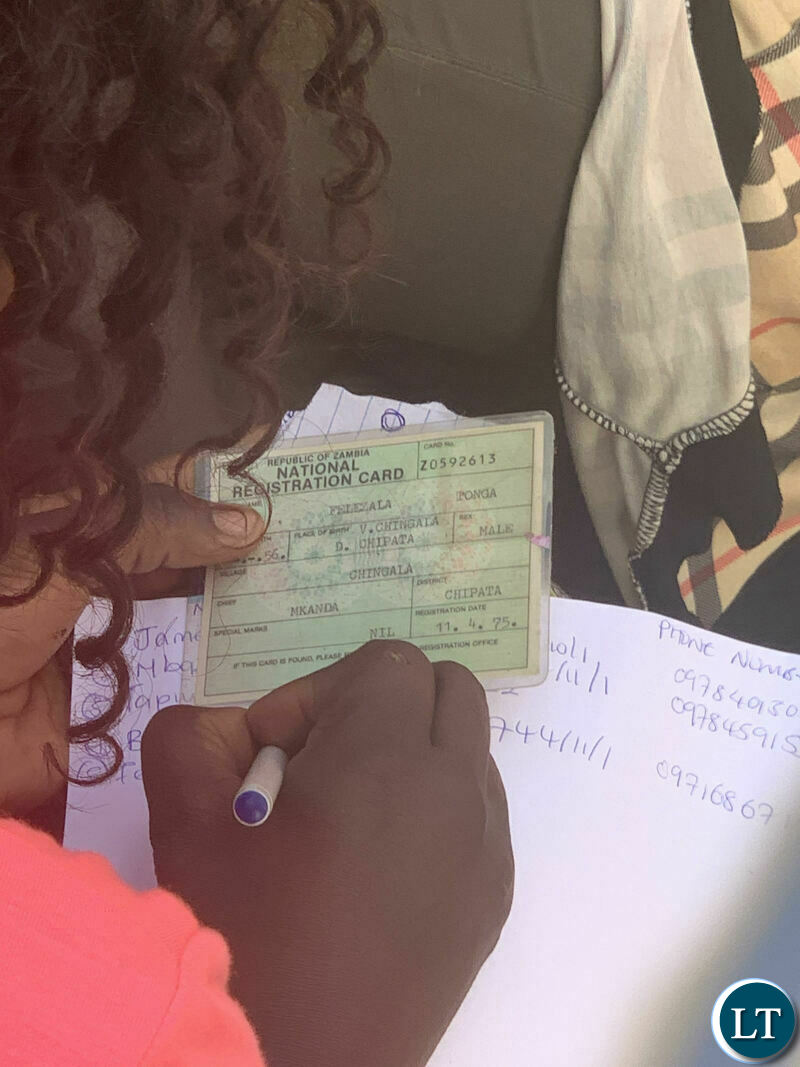
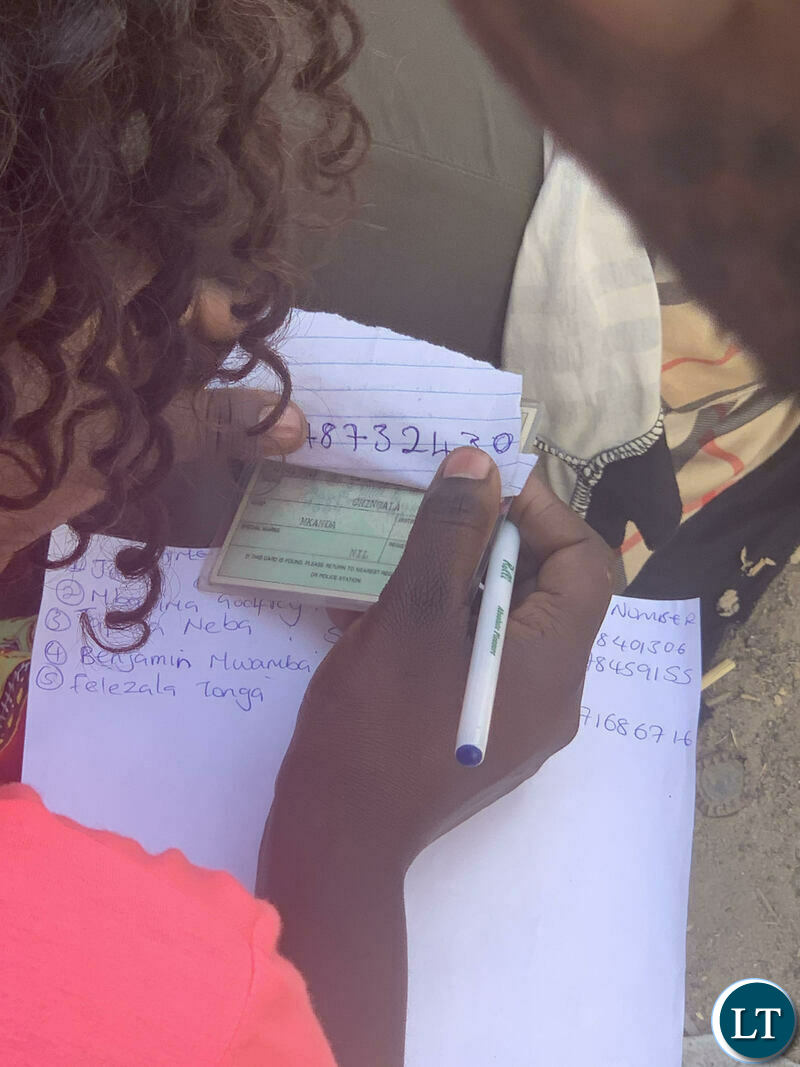
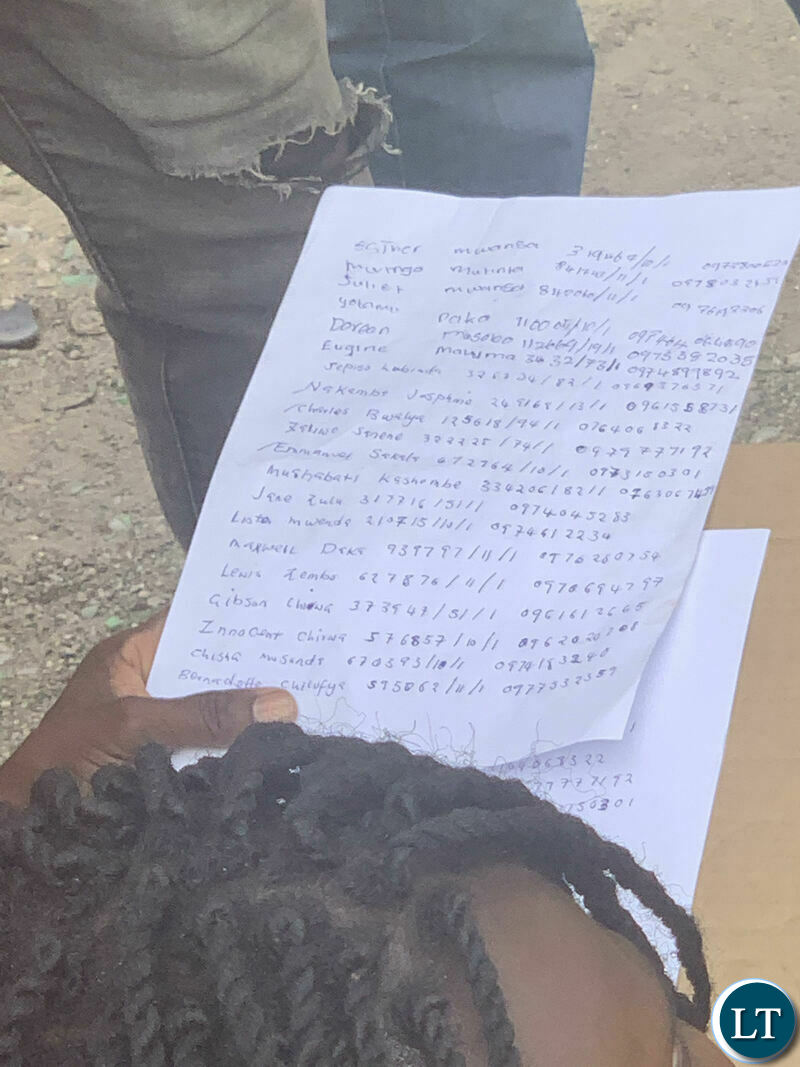
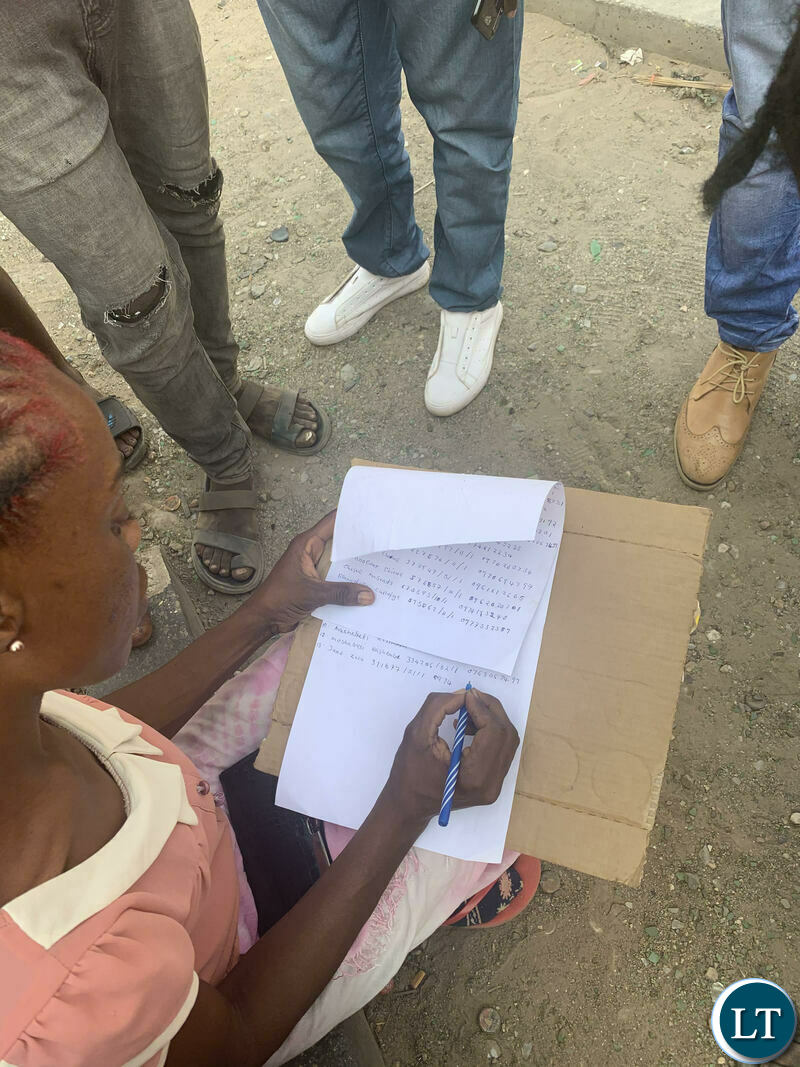
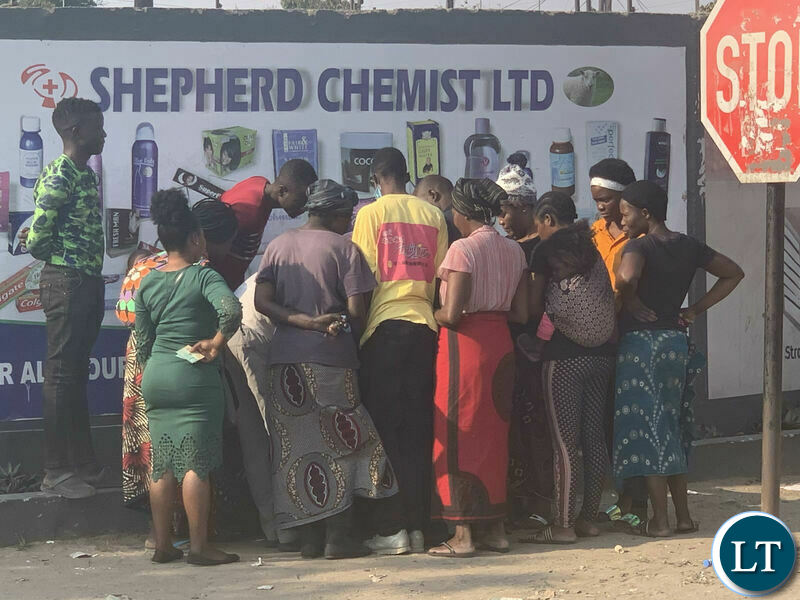
English is not a measure of intelligence, let’s embrace use of local languages-Bowman
Kabushi Member of Parliament Bowman Lusambo has suggested that Zambia should embrace the use of local languages in official communication saying English should not be used to measure one’s intelligence.
Mr Lusambo who is also Lusaka Province Minister has also called upon educational authorities to consider extending the teaching of learners in local languages across all Grades.
He said it is unfortunate that many brilliant pupils have failed to progress to University after failing to pass English.
Mr Lusambo was speaking on Saturday when he officiated at the Ndola District Covid-19 Inter-School Debate Contest held at Levy Mwanawasa Stadium.
Masala High School emerged winners of the contest and walked away with K8,000, a trophy, certificates, learning Martine and T-shirts followed by Kansenshi High School who received K6,000 and a trophy.
“I listened to a lot of good debaters here but unfortunately, some could not express themselves fully because of limited abilities in English. This happens across many other fields in Zambia.”
“It’s regrettable that a young man or young girl would have very good marks in all Sciences and Mathematics but have an 8 or a 7 in English and that pupil will be denied a place at UNZA. Are you telling me that if a pupil can’t pass English then that child is dull?”
Mr Lusambo explained that many advanced nations have embraced the use of their own languages.
“Language is part of our culture. By promoting the use of local languages, we are helping preserve who we are as a people,” he said.
He added,” What we have today is the Queens language, it’s not our language. After many years of Independence, we should be proud of examining our learner in Kaonde, Lunda, Lamba, Tonga, Lozi, Bemba and any of these local languages.
Mr Lusambo also thanked President Edgar Lungu for ordering the reopening of examination classes saying the move was a wise one as it has ensured that learners in exam classes prepare adequately for their exams.
“When His Excellency announced the move, many visionless people including those from the political sector criticized the move but as we speak, all schools went through the full term without recording any Covid-19 cases.”

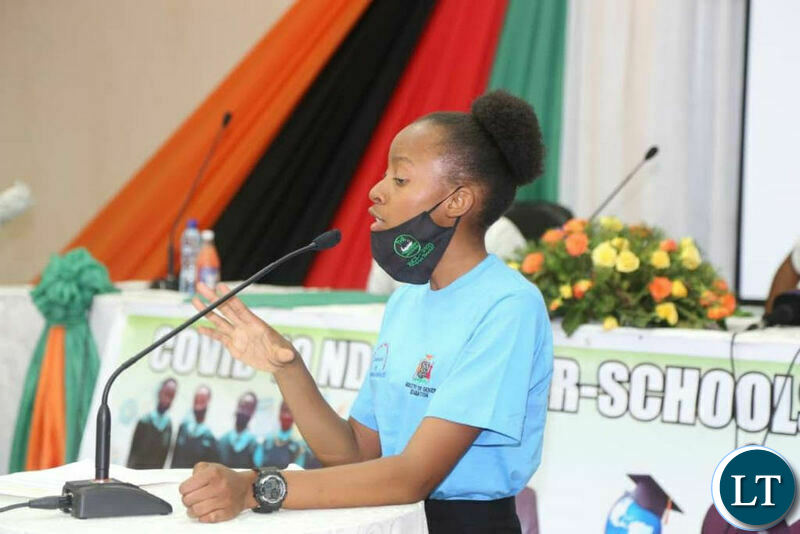
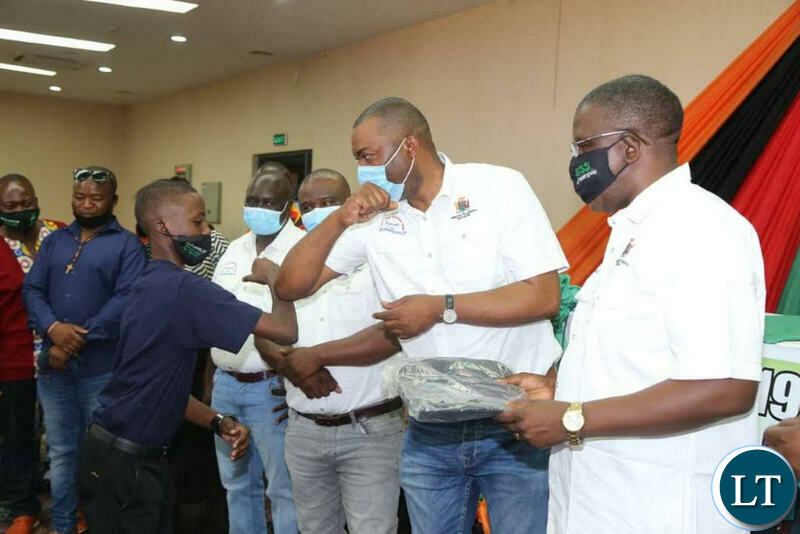
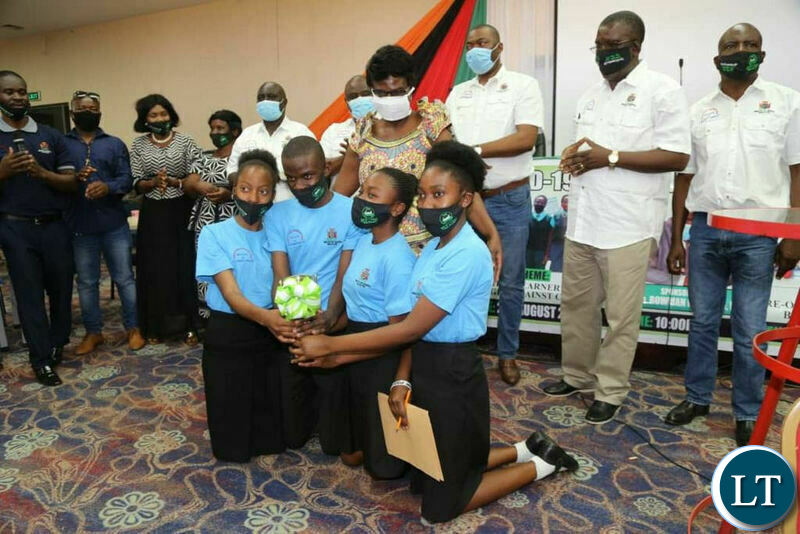
Vice President Inonge Wina has tested negative for COVID-19
Health Minister Dr. Chitalu Chilufya has disclosed that Vice President Inonge Wina has tested negative to COVID-19. This month, the Vice President tested positive for Coronavirus.
Speaking during the Country’s update on COVID-19 situation, Dr. Chilufya said the Vice President is at home after testing negative to COVID-19 and is in stable condition.
“Her Honor the Vice President Inonge Mutukwa Wina tested negative to COVID-19 and has been discharged from our care and continues to be attended to at home. She is stable and is recuperating very well under our care,” he said.
And the Health Minister says the COVID-19 relief package that is going around on social media is a scam.
“COVID-19 relief package is a scam. The COVID-19 relief package by some unscrupulous people calling on you to pay a certain amount for you ta access that package is a scam. Should you come across such individuals you should report to the police. And we disassociate ourselves from the package,” he added.
Meanwhile, Zambia has recorded 123 new COVID-19 cases in the last 24 hours out of the 1, 171 tests done.
Dr. Chilufya said unfortunately, one person has died of COVID-19 and the country recorded 147 recoveries.
He further added that this brings cumulative cases in the country to 11, 902 including 284 deaths and 11. 092 recoveries.
FIFA Sets Date For Its FAZ, Government and Stakeholders Meeting
FIFA has set September 1, 2020 for the long-awaited e-meeting with FAZ, Government and stakeholders.
The meeting was agreed on by local stakeholders after a FIFA ban was averted on July 10 when Zurich warned that the court case against FAZ must be withdrawn or it will be deemed as external interference in the running of affairs at Football House.
FIFA Member Associations Chief Veron Mosengo-Omba said the meeting will be attended by FAZ representatives, Ministry of Sport and National Sports Council of Zambia officials including three members of the alleged aggrieved parties to the ongoing electoral process.
“Moreover, this e-meeting will follow the below agenda: Welcome remarks by FIFA, Ministry of Sport/National Sports Council remarks; Presentation of alleged aggrieved parties on electoral complaints; Response by FAZ; Way forward by FIFA and closing remarks by FIFA,” Msoeng-Omba said in his letter to FAZ general secretary Adrian Kashala.
The 2020 FAZ electoral process was halted in March following banned FAZ member Damiano Mutale’s court injunction just before the nation went into Covid-19 lockdown.
This is just after provincial elections had been completed in six out of the ten provinces before culminating in the March 29 elective FAZ AGM for the President, Vice President and Women’s Football representative.



